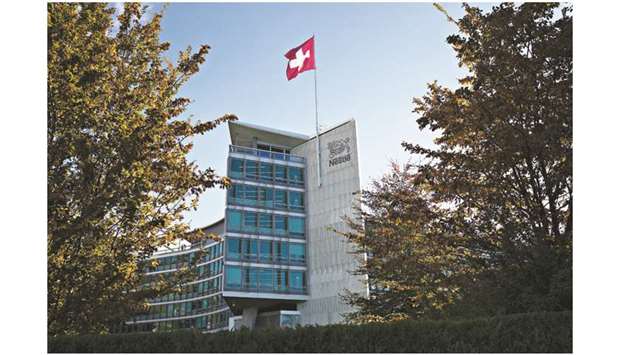After quietly supplying coffee addicts their daily fix for decades, Vietnam is preparing to take on Nestle SA and its Asian rivals to reach them faster.
Instead of selling raw robusta beans to foreign companies for turning into instant coffee, Vietnam’s biggest supplier is preparing to offer its own soluble powder in early 2020.
The shift is aimed at reaping more profit from Asia’s burgeoning demand for the quick-brewed beverage and to buffer the impact of large swings in international commodity prices.
“We don’t want to miss a chance to jump on the bandwagon of instant coffee,” said Do Ha Nam, chairman of Intimex Group, which exports as much as a third of Vietnam’s robusta beans, the bitter-tasting variety that is mostly used to make instant coffee.
“It brings more profit and less risk as it means we don’t have to rely on the price set by the London market.” Robusta futures traded in London have declined 11% in 2019 after slumping in three of the previous four years amid surging production from Vietnam, the world’s top producer and exporter.
The country’s coffee industry sees the expansion into domestic instant-coffee production as a more lucrative growth proposition than simply continuing to plant more trees.
India will lead growth in the retail market for instant coffee in Asia, increasing almost 12% a year to top $850mn in 2024, according to Euromonitor International.
The market researcher projects strong growth also in Indonesia, Malaysia, Philippines, Thailand and Vietnam. Booming Market “Asia is the world’s fastest-growing coffee-consuming region, where many consumers are still starting to build up a coffee-drinking habit,” said Jose Sette, head of the International Coffee Organisation in London.
Instant coffee is an ideal way to introduce the beverage to these consumers because of its ease of preparation, he said in an e-mail. “Vietnam can take advantage of its geographical position and low production costs to expand within the region.”
Ho Chi Minh City-based Intimex, which was a state-owned company before being sold to private investors in 2006, aims to overtake Nestle as Vietnam’s biggest pure instant-coffee supplier in the next five years by expanding annual capacity fivefold to 20,000 tonnes.
Nestle, the Vevey, Switzerland-based maker of Nescafe, will compete with both local and international companies by “leveraging our scale of size, our expertise in technology and manufacturing, with more than 75 years of experience in coffee, and by growing together with Vietnamese coffee farmers,” said Ganesan Ampalavanar, general director of Nestle Vietnam.
“There are many small and medium-sized companies that are very focused and that are competing fiercely with big players and competition is strengthening the category,” he said. Vietnam aims to double the value of its annual coffee exports to $6bn in the next decade, according to Nguyen Do Anh Tuan, head of the agriculture ministry’s international co-operation department.
The plan includes increasing the volume of green beans used in the intensive coffee-processing sector to 30%-to-40% of the country’s total output from the current 10%, leaving a smaller quantity available for export as unroasted, green beans.
Vietnam shipped 1.56mn tonnes of coffee, including more than 36,000 tonnes of processed coffee, in the 2018-19 season that ended September 30, a Bloomberg analysis of customs data show.
Domestic roasters and soluble plants are slated to use more than 500,000 tonnes of green beans annually in the next three years, 40% more than what’s currently consumed, said Le Tien Hung, CEO of the second-largest exporter Simexco Dak Lak.
Olam, Tata Vietnam has the capacity to make as much as 58,500 tonnes of instant coffee a year from nine plants, according to data compiled by Bloomberg News.
Factories invested by Nestle, Olam International Ltd, Tata Group and CCL Products India Ltd make up about 70% of the total. Capacity is poised to increase by at least 40,000 tonnes in the next five years with new investment and planned expansions from both local and multinational companies.
“These factories certainly will influence demand in the local market,” said Alex Gruber, chairman of Master Roasters Services Saigon Ltd, adding that they will be able to pay higher prices because of the extra value they have created.

The headquarters of Nestle in Vevey, Switzerland. After quietly supplying coffee addicts their daily fix for decades, Vietnam is preparing to take on Nestle and its Asian rivals to reach them faster.
